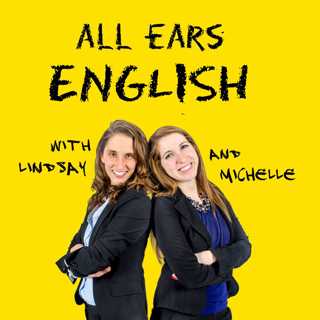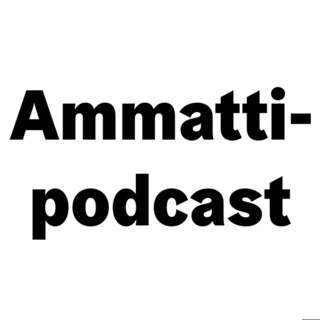
AEE Bonus: How to Improve your IELTS Reading Score with Our New IELTS Energy Podcast
Go to this link to subscribe, rate and review IELTS Energy: https://itunes.apple.com/us/podcast/ielts-energy-english-podcast/id969076668?mt=2 Learn more about your ad choices. Visit podcastchoices.com/adchoices
9 Maalis 20155min

AEE Bonus! Try Our New IELTS Energy Podcast
Go here to get the IELTS Energy Podcast Learn more about your ad choices. Visit podcastchoices.com/adchoices
5 Maalis 20153min

AEE 281: 3 Easy Ways to Connect with a Local Canadian in English
Will you be visiting Ottawa someday? Today, meet Kathleen from Canada, and get 3 phrases to connect with locals in the capital city, Ottawa! Canada is a multicultural and diverse country, and Ottawa is a micro version of that. It’s a city of one million inhabitants and numerous languages. It is also a city in touch with nature. With four distinct seasons, Ottawa has something for everyone. Though Canada and the United States have some similarities, they also have many differences. Among these are some subtle differences in using the English language. This includes pronunciation and some commonly used phrases. Here are Kathleen’s top Canadian phrases to help you blend in when you’re in Ottawa! I’m sorry: Canadians are known for being very polite. In fact, the culture can be so polite it becomes apologetic. Sometimes Canadians will begin a sentence, “I’m sorry,” even if they did nothing wrong and aren’t apologizing for anything. Out and About: This means to go exploring or to check something out. A Canadian might say “Let’s go out and about,” or “I was out and about.” Eh?: Often, this word is used the way an American might use the words “right?” or “huh?” It shows agreement or clarification with other people. You might hear someone say, “That was a great show, eh?” Are you going to Ottawa, or Canada? Have you ever been there? Share your thoughts in the comments section below! Kathleen is a native English speaker from Ottawa, Canada. She has been teaching and tutoring students in English and beginner French for over three years in Asia, Latin America and Canada. She also speaks French and Spanish, and so understands the challenges and joys of learning a new language. In her experience, conversation is the best way to improve language skills. Kathleen has worked and continues to work in the areas of community development, and is currently completing her Bachelor of Education. This summer she will be teaching in Ulaanbataar, Mongolia. She loves meeting people from different cultures and learning new languages. Learn more about your ad choices. Visit podcastchoices.com/adchoices
5 Maalis 201516min

AEE 280: Spark the Conversation! 4 Topics to Use on a First Date in English
Are you dating in English? Today, we welcome back dating expert Jessica Coyle to give you four easy topics for conversation when dating! Conversation can be tricky on a first date. You might be nervous, and it can be hard to know what’s safe to talk about. Jessica has a great acronym to help you with simple, safe discussion topics. It’s FORD, and it stands for: Friends: If you have mutual friends, ask how your date met them. Or, if you don’t have mutual friends, ask if your date knows anybody in the area where you’re meeting. Occupation: Asking about another person’s job is usually a good conversation starter. You might say, “What do you do with your time?” That way, if your date happens to be unemployed, they are still able to give an answer. Recreation: Ask about what somebody likes to do for fun. You might follow up by asking, “How often do you get to do that?” Dreams: This is good for asking hypothetical questions. You could ask things like “Where do you see yourself in ten years?” or “What would you do if you had a billion dollars?” People love talking about themselves, so being interested in others is what might make you more interesting to them. When starting a conversation, don’t just ask a list disconnected questions. Follow-up with the other person’s answers to show that you are listening to what they are saying. Are you dating in English? What are your experiences? Tell us how it’s going in the comments section below! Jessica Coyle has been teaching English since 2007. She received her Master’s in TESOL in 2013, finishing with a professional project researching the use of improvisational comedy teaching techniques to teach English as a second language. She has studied and performed improv comedy all over Korea, China, Canada and the United States. How to find Jessica Online: Her dating blog: https://hopefuldisasters.wordpress.com/ Her comedy podcast: NY Pacific Learn more about your ad choices. Visit podcastchoices.com/adchoices
4 Maalis 201518min

AEE 279 Part 1: Listen to a Real, Spontaneous First-time Meeting in English
Are you looking for an authentic English conversation? Today, listen to Part 1 of a real, authentic example of two people using English to get to know each other! In Part 1 of this episode, Lindsay meets Mo. Mo is from New Zealand but has lived all over the world. He currently lives in Germany and teaches English. The two of them talk about this, and about learning a language and living in a different culture. Some of the discussion points in Part 1: Why do people want to learn English? How can they be relaxed enough to learn it? Is it okay to accept that you’ll never be a native speaker? What did you get out of this conversation? Share your thoughts in the comments section below! Learn more about your ad choices. Visit podcastchoices.com/adchoices
3 Maalis 201518min

AEE 279 Part 2: Learn How to Meet Someone New in English in a Confident and Easy Way
Are you looking for an authentic English conversation? In Part 2 of today’s episode, Lindsay and Mo break down their unrehearsed, first time meeting from Part 1, and talk about what it means to you learning English! In Part 1 of this episode, Lindsay met Mo. They hadn’t met before and didn’t know what was going to come up in their spontaneous conversation. Now, in Part 2, the two of them discuss what worked, and what didn’t. Some of the discussion points in Part 2: How can you feel confident in English conversations? How can you be respectful about gender and other differences when meeting someone new? How can you allow your true curiosity about the other person come out even though your English isn’t perfect? What did you get out of this conversation? Share your thoughts in the comments section below! Learn more about your ad choices. Visit podcastchoices.com/adchoices
3 Maalis 201516min

AEE 279 Part 3: BE in English to Develop Bulletproof Confidence with Mo Riddiford
Are you looking for an authentic English conversation? In Part 3 of today’s episode, Mo will show you three ways to develop authentic, bulletproof confidence when you speak English with his unique method! In Part 1 and 2 of this episode, Lindsay and Mo had an authentic English conversation and analyzed what worked, and what didn’t. Now, in Part 3, Mo discusses Be in English, his method for learning how to have the best conversations possible in English. Here are the main principles of the Be in English system: 1. If you know enough English to listen to this podcast, you can discuss anything in English! By using creativity, you are capable of joining a conversation and having a voice. 2. Be aware of your self-consciousness and shame about not speaking perfect English. Accept it, realize that your English will never be “perfect,” but don’t get too close to the idea. 3. Work with “naked listening.” That is, listen closely to a recording of English. Listen several times if necessary until you can distinguish every sound. Practicing this will change your orientation to listening. You can find and work with Mo Riddiford and his Be in English system on italki. What do you think about the Be in English system? Share your thoughts in the comments section below! Learn more about your ad choices. Visit podcastchoices.com/adchoices
3 Maalis 201518min

AEE 277: 3 Strategies to Remember Someone's Name in English with Alan Headbloom
How can you remember other people’s names? Today, learn three tactics to remember names in English, and why it’s important to do so! A name is a person’s most basic possession and part of their identity. It’s the sweetest sound to their ears. For this reason, Alan Headbloom believes it’s important to get a person’s name right, and to show an interest in it. But it’s not always easy to do that, especially with names you are unfamiliar with. Here are Alan’s tips for remembering new names: If a name is unfamiliar, ask them to repeat it. This helps you learn their name and also shows a respectful commitment to learning it. Simply say, “Your name is a little difficult for me, but I’d really like to get it right. Could you say it again?” Ask for their business card. This works best in a business context, though students may also have business cards. Reading the name might make it easier to remember. Make up a pneumonic, or memory aid. Think of what the unfamiliar name sounds like in your native language and use that to help you remember. This is a way to bridge your language and English. Alan suggests you also learn common names in the English-speaking world, and that you try asking others if their names have any special meanings or significances. How do you deal with learning new names? Share your experiences in the comments section below! Alan Headbloom is an intercultural trainer, a professional English teacher and a talk show host. He frequently appears as a speaker on topics such as cultural diversity and workplace inclusion. He lives in Michigan, USA where he and his wife produce the show Feel Like You Belong, a show about immigrants creating a new life in the United States. Visit Alan’s Website: Feel Like You Belong and Alan Headbloom- Cross Cultural Communication Learn more about your ad choices. Visit podcastchoices.com/adchoices
26 Helmi 201517min





















